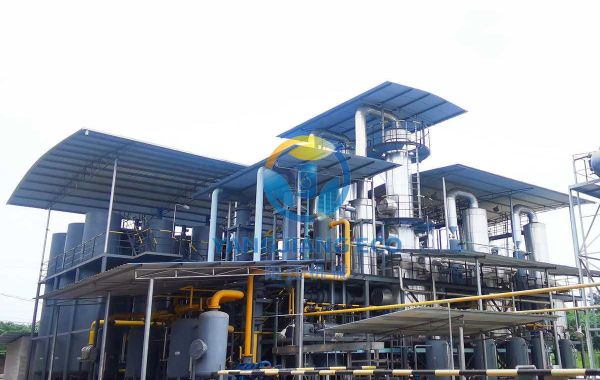1. High Capital and Operational Costs
Desulfurization of black diesel typically requires sophisticated technologies such as hydrodesulfurization (HDS), which involves high pressures and temperatures. Implementing these technologies can be costly, especially for small-scale refineries. The initial capital investment in equipment and infrastructure is a significant hurdle. Additionally, the operational costs associated with maintaining such systems, including energy consumption and catalyst replacement, can be prohibitively expensive for smaller players in the industry.
2. Complexity of Sulfur Removal
The sulfur content in black diesel varies depending on the type of crude oil used and the refining process. For small refineries dealing with a mix of feedstocks, achieving consistent sulfur removal can be challenging. Sulfur compounds in diesel exist in multiple forms, including organic sulfur and hydrogen sulfide, which require different treatment methods. Effective desulfurization thus demands precise control over the refining process, a challenge for small-scale refineries that may lack the advanced monitoring systems or technical expertise of larger operations.
3. Regulatory Pressures
As environmental standards continue to tighten, small-scale refineries are increasingly pressured to meet stringent sulfur limits set by governments and international bodies. In many regions, the sulfur content in diesel must be reduced to below 10 parts per million (ppm), a target that requires robust desulfurization technologies. Compliance with these regulations can strain the resources of smaller refineries, which may not have the budget to invest in advanced desulfurization units or the ability to keep up with changing regulatory requirements.
4. Limited Access to Technology and Expertise
One of the major challenges small-scale refineries face is the limited access to cutting-edge desulfurization technologies and expertise. While larger refineries can afford to invest in research and development or form partnerships with technology providers, smaller refineries often struggle to implement or upgrade their desulfurization processes. This results in a reliance on older, less efficient technologies or the need to outsource desulfurization to third-party facilities, which can further drive up costs.
5. Environmental and Waste Management Concerns
Desulfurization processes generate waste byproducts such as spent catalysts and sulfur-rich sludge. For small refineries, managing these waste materials can be an environmental and financial challenge. Disposal costs and compliance with waste disposal regulations add another layer of complexity to the desulfurization process, making it even more difficult for small-scale operations to remain competitive.
Conclusion
While desulfurizing black diesel is essential for meeting environmental standards and improving fuel quality, the challenges faced by small-scale refineries are significant. From high costs to technological limitations, these refineries must navigate a complex landscape to remain viable. However, with innovation, government support, and strategic partnerships, there is potential for small-scale refineries to overcome these barriers and play a key role in producing cleaner, more sustainable fuels.








